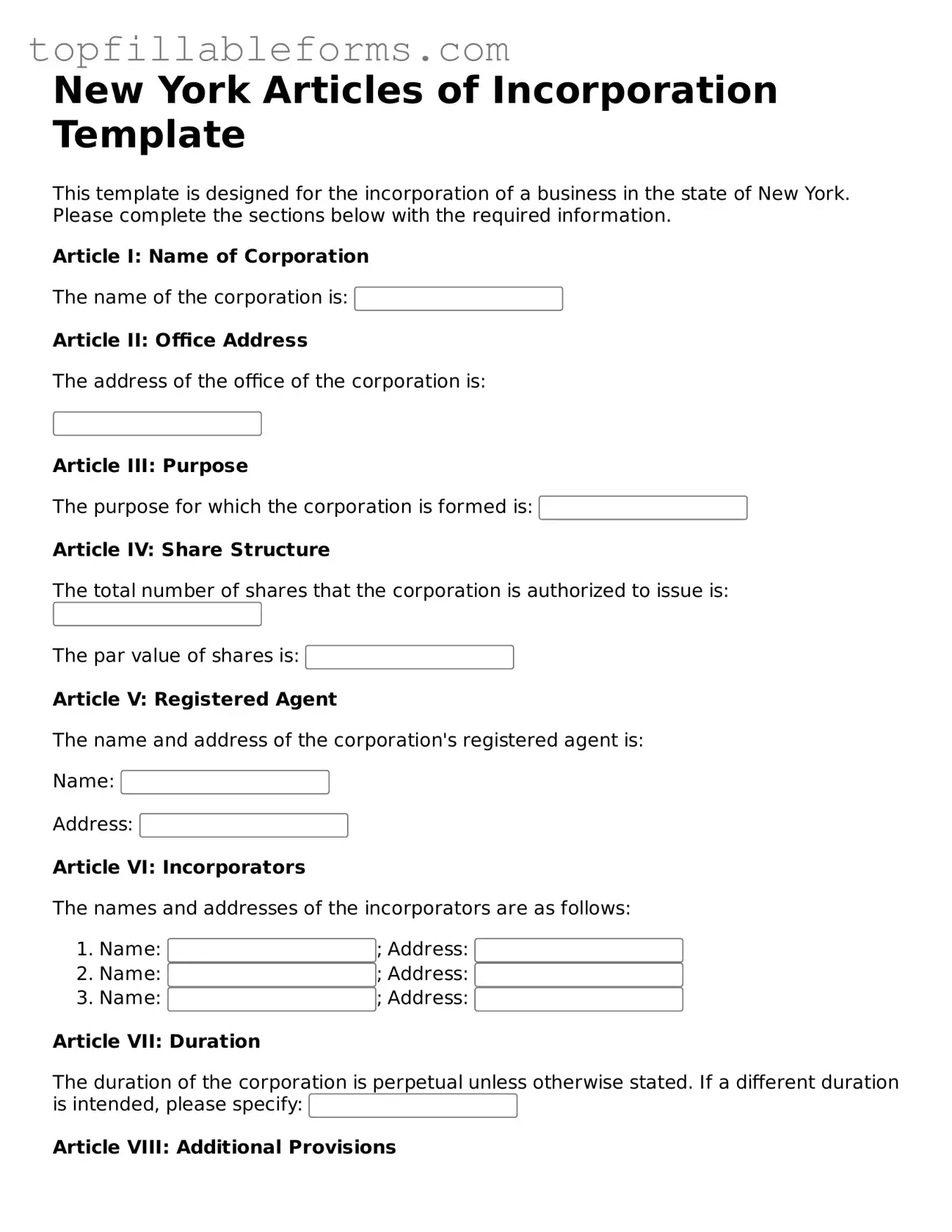Attorney-Verified Articles of Incorporation Template for New York
The New York Articles of Incorporation form is a legal document that establishes a corporation in the state of New York. This form outlines essential information about the corporation, including its name, purpose, and structure. Completing this form is a crucial step for anyone looking to create a legally recognized business entity in New York.
Open Articles of Incorporation Editor Here

Attorney-Verified Articles of Incorporation Template for New York
Open Articles of Incorporation Editor Here
Finish the form now and be done
Finish your Articles of Incorporation online by editing, saving, and downloading fast.
Open Articles of Incorporation Editor Here
or
▼ PDF File
